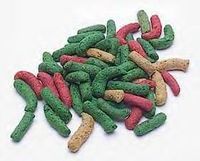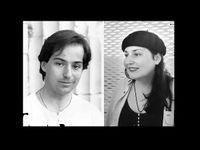UnNews:Workplaces drug workers
22 February 2007
WASHINGTON, D. C. - According to the Food and Drug Administration (FDA), in a disturbing trend, American workplaces have begun to drug workers in an effort to increase productivity.
“American employees are the laziest in the world,” Myron Matthews, a spokesman for one of the world’s largest pharmaceutical corporations told Unnews’ reporter Lotta Lies. “They actually work about two hours out of every eight, so, by the end of the week, they’ve put in about 10 hours of labor--only one fourth of the amount for which they’ve been paid. By supplying them with energy boosters, we hope to increase their levels of productivity. Maybe, by the end of each workday, they will actually have earned their paychecks.”
Critics regard the drugging of American workers as unethical. “It’s a chemical invasion of our bodies,” Naomi Smith, a secretary for Hothouse Productions complained. She added, “I already take enough drugs without my boss’ help.”
Other employees have added similar objections to their employers’ drugging them on the job.
“Already, they control what I say and what I wear,” Molly Barrows said. “I can’t talk politics or religion--not that I want to--and I can’t wear mini-skirts, low-riders, hip-huggers, short shorts, or blouses with low necklines. I’m not even allowed to go braless while wearing a see-through top. Now, the bastards want to drug me? It’s unconstitutional! Isn’t it?”
Matthews called such concerns “unfounded,” insisting that companies are careful about the drugs they allow into their employees’ bodies. “Companies care about their workers. After all, businesses are paying their health insurance. Employers don’t want to run up medical expenses. Besides, the so-called drugs aren’t really drugs, anyway, not in the sense that that term is ordinarily used.”
According to Matthews, corporations are making natural, organic, herbal dietary supplements, not drugs per se, available to employees by adding them to pastries, doughnuts, and other snacks that the companies provide free to their employees. Such “supplements” include “nothing more sinister,” Matthews said, than alfalfa, green barley extract, wheat grass extract, chlorella, and kelp, which are good for arthritis, cancer, constipation, heart disease, high blood pressure, impotence, kidney problems, obesity, and aging. “These are the maladies that affect our current population of workers, especially the baby boomers,” Matthews said.
The FDA isn’t as reassuring about the addition of these “supplements” to the diets of America’s workforce, and, according to the Department of Justice, their use in snacks may be illegal unless employees are notified that these ingredients have been added in advance of their consumption of them. “The drugs mentioned by Mr. Matthews--and, make no mistake about it; they are drugs--are untested,” the FDA's Bo Bowers said. “For all we know, they could cause the very conditions that they are said to prevent.” Their use in employee snacks is under investigation by both the FDA and the Federal Bureau of Investigation (FBI).
“I don’t understand all the hullabaloo,” Matthews said. “We’ve been supplying coffee to workers for years now, and no one complains about that. Isn’t caffeine a drug? At office parties, the booze flows like water over Niagara Falls. Isn’t alcohol a drug? The historical record demonstrates the right of the employer to drug employees. This is no different.”
“There is a difference,” Smith contended. “I know the coffee and the booze are there, but the bastards have been adding these other drugs to my snacks without my knowledge.”
At the press conference during which Matthews discussed this issue with reporters, he refused the offer of a doughnut. “I’m on a diet,” he explained. He also refused a cup of coffee, saying that he was “allergic to caffeine.”
Source[edit | edit source]
- Lotta Lies "Companies: are they concerned with workers’ health or with just their work?" Instant News, 50 seconds ago

